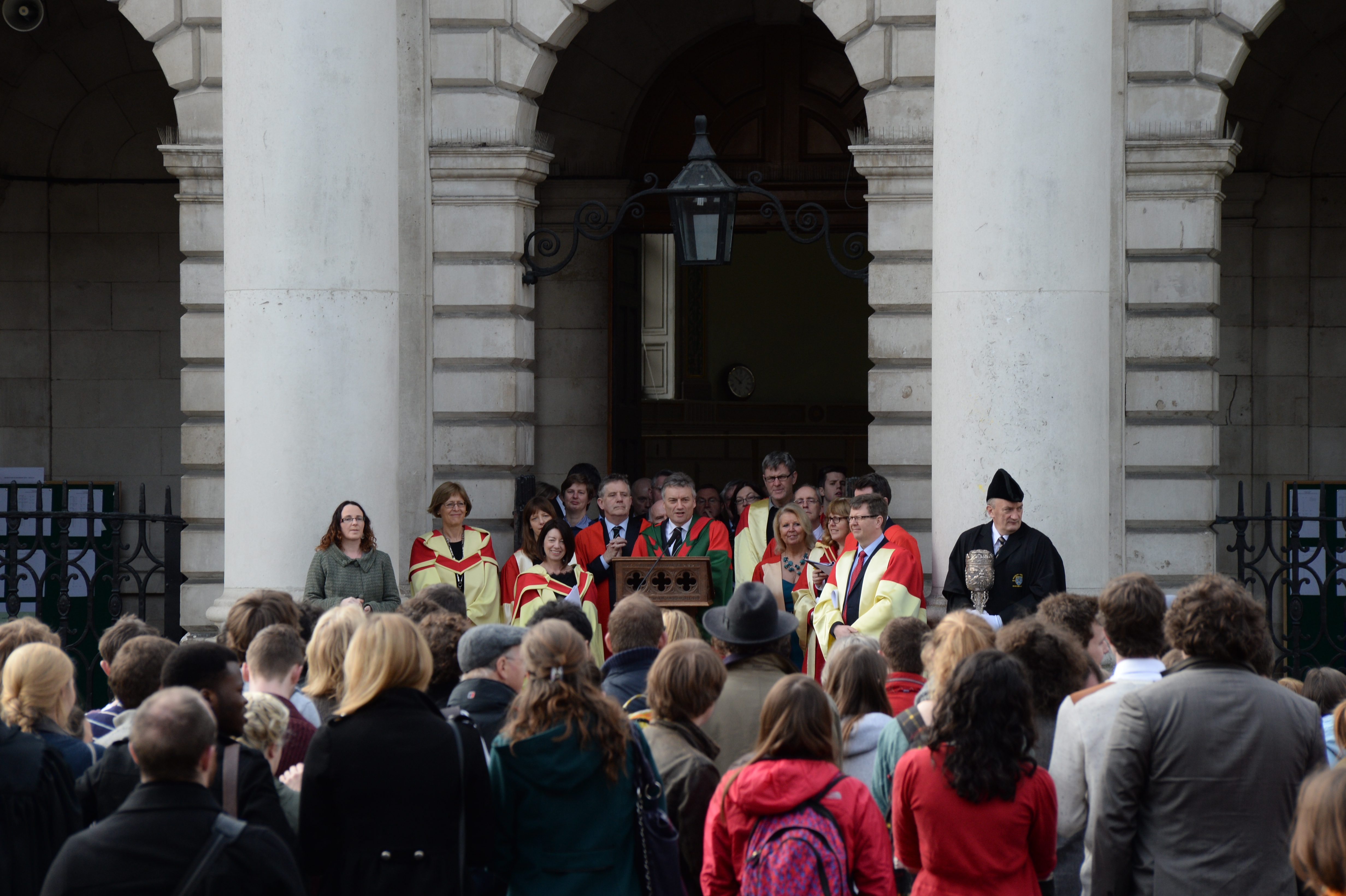It seems like a fantastic idea: test students’ originality, critical thinking and application of knowledge in a rigorous set of exams, and reward the best candidates. For me, the problem arises when the reward is worth thousands. Free fees, dinner and an apartment for five years; with so many students struggling to make ends meet it’s ridiculous to give a free apartment to someone who can afford one anyway.
Of course, not all scholars could do without the money; some of them genuinely appreciate it. But more than half of the scholars I know went to south Dublin private schools. They’d be perfectly fine living at home, and even if they wanted to move out, many could pay for it anyway. We shouldn’t be throwing money at people who are comfortable while the grant is being cut. Never mind the fact that schols is easier in certain courses than it is in others, meaning some people are already disadvantaged before they start.
The logic of schols
So why don’t we means test schols and give a smaller reward to those who don’t need a free apartment? Because schols, as a whole, with some exceptions, privileges people who need less. Consider the way in which schols is structured. You have to take a huge amount of extra time out to study material not necessarily relevant to your current course, and the exams are just after Christmas. This specifically disadvantages people who don’t live in Dublin and need to go home over holiday periods, but it also removes the chance of getting schols from people who have to work a part time job to pay their bills. It forces people to spend a disproportionate amount of time on college work when they could be getting more involved in societies or sport and keeps out people who, for work or family reasons, just don’t have the time. The sad thing is that some of these people get firsts in their regular college work because they can budget that time, but with the extra pressure of schols, this can’t happen.
Even if schols wasn’t an extra set of exams though, and even if the scholarship was only based on final exams, I have an objection to merit-based scholarships generally. First, there still remains the problem that some people who get them will not need the money. And more generally, all merit-based scholarships privilege those with more advantages instead of providing support to those who most need them most. Think about the entrance exhibition; an expensive book voucher given to students who do well in state exams. Wouldn’t those books be better in the hands of people who can’t afford textbooks? People who didn’t do as well in state exams, but got to Trinity on the Trinity Access Programme?
Compounding underprivilege
Financial support should always go to the ones who need it the most, which can’t happen if you give it based on merit. It would be fine to give prizes and titles for academic achievement, but when you bring money in you take it away from Trinity Access Programme and from money that could be shared out among more students. Aside from the obvious financial privileges, it’s problematic to give extra advantages in college to people who already have so many. Scholars have more sway in college. They have their own committee to fight for their interests. They get to vote in college elections. To give privileges that could be important to every student specifically to people who get a first in a set of exams seems counter-intuitive. Why not just give them to everyone? Presumably because the reason is to keep scholars happy and to make people want schols; if people are kept in the thrall of scholarships by extra privileges and financial rewards, the system will keep going because it stays popular. Most of the discussion of schols this year has revolved around their rewards being taken away, but no-one seems to be questioning whether they should have them in the first place. We don’t want to resist the system, because wouldn’t it be great if you got it?
As to the grand tradition of schols, it seems intuitively untrue to me that we should continue to do something just because we have always done it. The grand idea of dining on commons with the other scholars is so much less important than making sure every student has equal opportunities. That means giving more, not less, to people who don’t have enough money and aren’t as academically talented as others.
Ask yourself: how many scholars do you know from outside of Dublin? How many scholars do you know who gave up a part-time job after getting schols, relieved that they didn’t need to work anymore? How many mature students and people from the Trinity Access Programme are scholars? If a scholarship is really merit based, it should be equally difficult for everyone to get. And a scholarship based on exam results shouldn’t exist when the money could be going where it’s needed. The problem will continue to be that people want the benefits, and the ones that can get them have no incentive to have them go somewhere they’re really needed.







